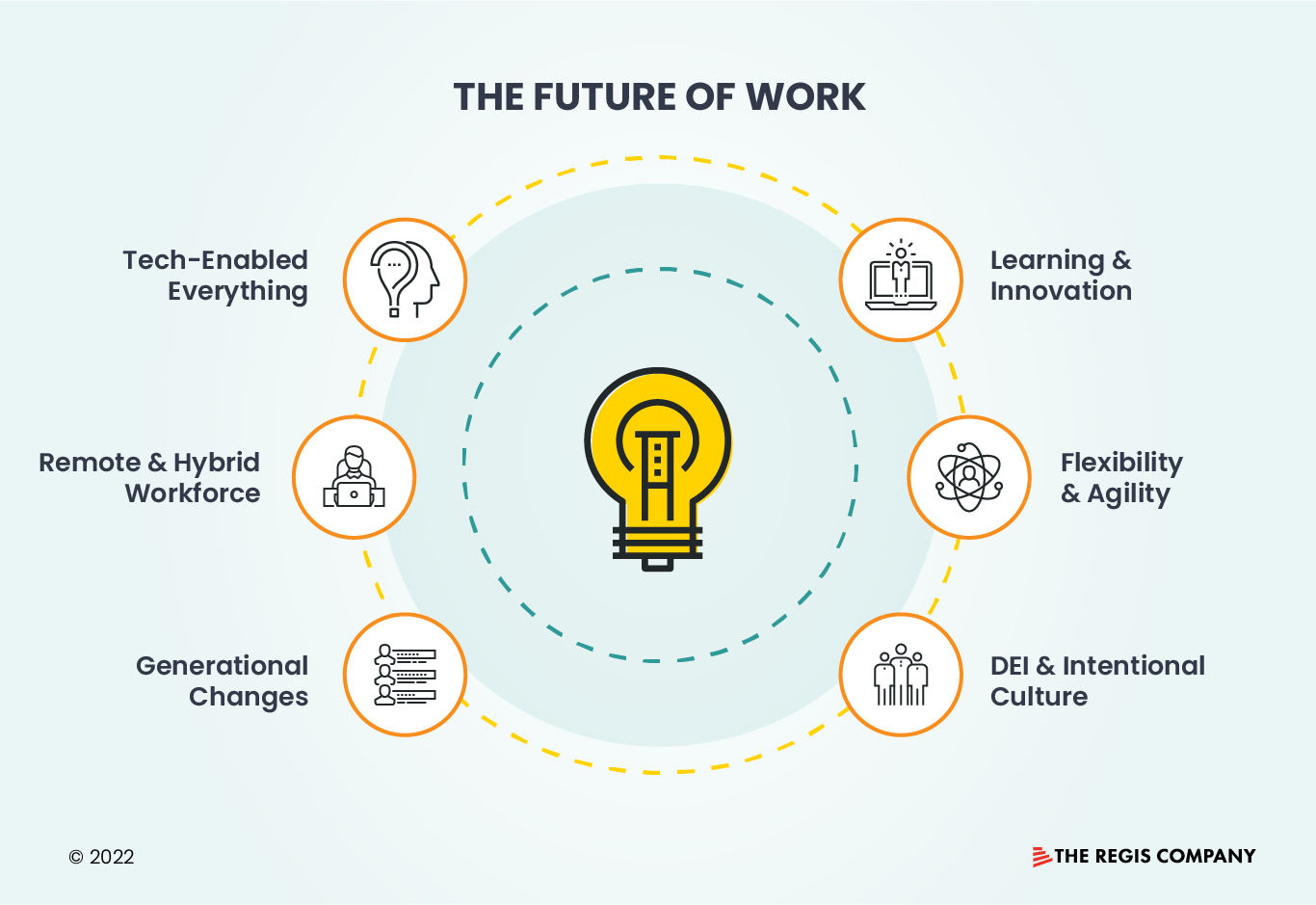-
Tech-Enabled Everything
It should be no surprise that we see a rapid acceleration of automation. The pandemic has increased the trend toward a shift of labor from humans to machines.
According to the World Economic Forum, this shift toward automation will displace 85 million jobs by 2025 and create 97 million new jobs over the same time span.
This is where upskilling in the workplace takes on a whole new relevance. We’re seeing more and more evidence of this as companies like Amazon announce infusing massive investments into upskilling and training their employees. Because, as we know, it’s better for company culture as well as the company bottom line to keep and retrain than to fire and rehire.
-
Remote and Hybrid Workforces
It’s no secret today’s workers strongly prefer to work from home. LinkedIn Learning reports that 81% of executives are changing their workforce policies to offer employees greater flexibility. However, the growing concern is how to promote inter-office connection, culture, and learning when colleagues are not working face-to-face daily.
At Regis, we’re seeing an increase in online learning that is re-focused on building community and connection so that both remote and hybrid employees feel they’re part of a team and not just faces on a screen.
-
Generational Shifts
Gen Z makes up the cohort of workers who are currently in their early to mid-20s, and this group is distinct in that they ask for a different way of working and learning as they enter the workforce.
69% of Gen Z’s are carving out more time for themselves to learn, and so it follows that upskilling is the number one value for this generation. Gen Z employees also focus more on developing hard skills (like coding Python and learning market foundations) than soft skills.
-
Learning & Innovation
All organizations like to talk about innovation, but what does it mean? Our clients are saying innovation means reimagining learning programs so they can:
- attract the best talent
- be seen as an employer of choice
- create and bring products to market faster than competitors
- stay relevant over long periods
-
Flexibility & Agility
Flexible, agile, resilient, and adaptable are all words to describe the kinds of organizations that can keep in step with the future of work. However, these assets are not just buzzwords, they have to be part of the organizational policies and practices that keep strategies and teams fresh and relevant.
This means that people need to develop flexibility and agility, and so do organizations.
-
DEI & Intentional Culture
Diversity, equity, and inclusion are the fundamental foundation for employees to feel safe and valued in the workplace.
Google’s 2012 Project Aristotle dug deep into DEI & Intentional Culture and came out with some highly relevant insights: Psychological safety allows team members to feel comfortable taking risks and speaking their minds which brings about real advancements.
Employees, current and prospective, are calling for growth and purpose, flexibility, and overall well-being. Organizations are working to answer these calls, grappling with the urgent challenge of future-proofing their organization.
The results? Organizations are better equipped to attract key talent, upskill their employees, and improve retention and employee satisfaction.
This idea goes hand-in-hand with a sense of dependability, structure, clarity, and a strong understanding of the meaning and impact of the work. Each category is a leveraging point for strong and innovative workplace communities.

